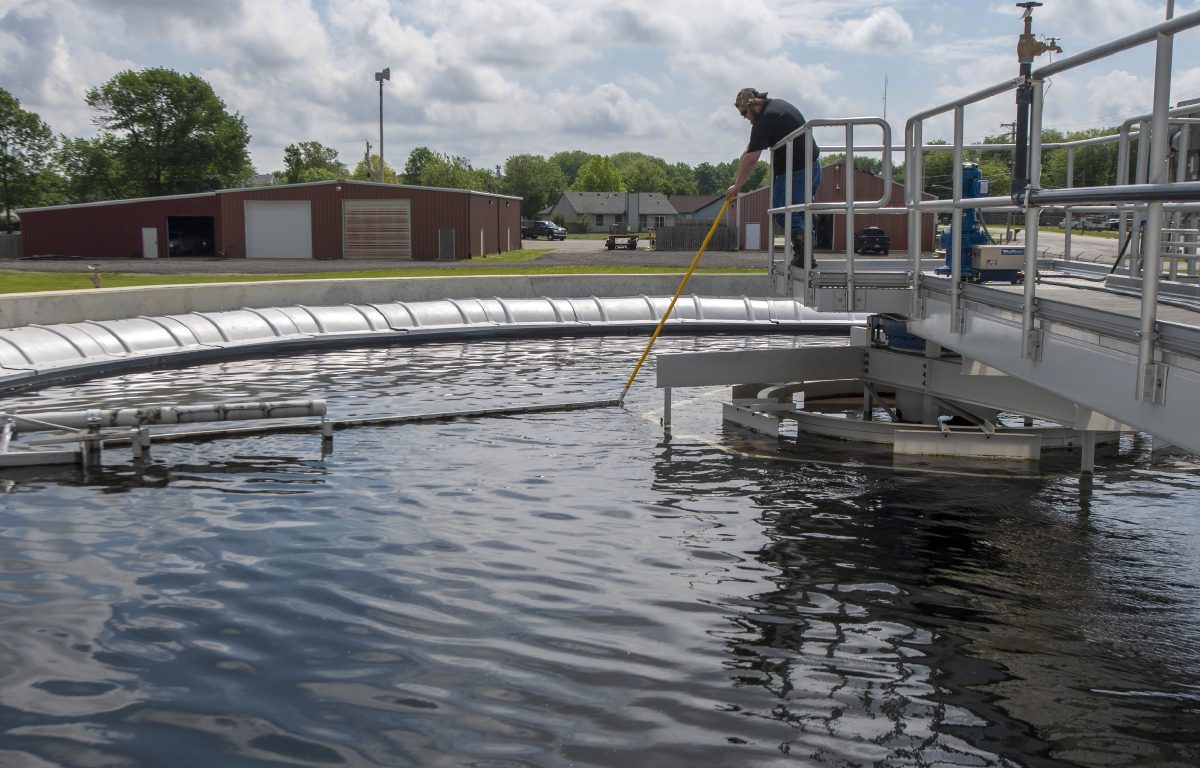The town grew fast, and the pace of growth in Bargersville is likely to accelerate even more once Interstate 69 is built through the county.
To prepare for that growth, the Bargersville Utilities Office has developed a 10-year plan which culminates in building a second wastewater plant to serve residents and businesses drawn in by the new I-69 Corridor, said Ken Zumstein, utilities manager.
Zumstein plans to budget for as many upcoming projects as possible within the town’s current rate schedule, but anticipates some larger projects, such as expanding a water tower at Smith Valley Road and future expansions of the wastewater plant will require rate hikes down the road. But those projects are not immediately planned and would come after significant growth, he said.
With some of the town’s customers unable to pay their utility bills due to widespread unemployment stemming from the coronavirus pandemic, Zumstein expects some potential delays in the department’s proposed projects, he said.
[sc:text-divider text-divider-title=”Story continues below gallery” ]Click here to purchase photos from this gallery
Unlike some of the larger utility companies which have requested businesses pay for utilities they did not use during the pandemic, Bargersville remains in good shape; most of its 14,000 customers are residential users. So rather than a decrease in revenue, the pandemic has caused most residential bills to go up with more residents working and learning from home, Zumstein said.
To prepare for future growth of both residential and business customers, a few projects are already underway, others will begin soon and some have been completed already.
One recently completed project is the new wastewater facility, which doubles the town’s previous processing capacity to 2 million gallons per day, up from 1 million gallons. The plant was built to accommodate expected growth over the next 10 years, Zumstein said.
Before the update, the town was using about 2/3 of its 1 million gallons per day capacity. Though the town does not need all 2 million gallons yet, expanding now, in conjunction with needed updates for phosphorus control, likely saved taxpayers $2 million to $3 million compared to the projected costs of expanding it later, he said.
The $9.8 million plant came online last month and was paid for with a State Revolving Fund (SRF) loan. SRF loans are low-interest loans to improve wastewater or water infrastructure.
Instead of joining forces with Morgan County on a wastewater expansion project going on across the border in Waverly, Bargersville decided to increase its capacity and save money for a future expansion. The Waverly plant, which will process less than a million gallons per day, will be much smaller than Bargersville’s projected needs, Zumstein said.
“We were afraid it would stop our growth,” he said.
The Johnson County Board of Commissioners is mulling over a joint venture with the Morgan County Board of Commissioners on the Waverly plant, but have not announced whether they will join in on the project to connect White River Township residents to the facility.
Another short-term plan is to upgrade the town’s aging underground utility lines. A lot of the pipes servicing neighborhoods in the old part of town are about 50 years old, Zumstein said. To prioritize which pipes to replace first, utility workers will bring in a specialized camera to check the conditions of the infrastructure without digging.
The plan is to replace those pipes over the next six or seven years. The town will budget $100,000 to $150,000 each year for that, he said.
[sc:pullout-title pullout-title=”At a glance” ][sc:pullout-text-begin]
These are the Town of Bargersville’s top priorities in preparing for expected growth due to Interstate 69’s expansion through the county:
- Provide utility services at a reasonable rate to the existing and future utility customers by creating a maintenance program with an affordable budget for the town’s facilities;
- Extend sewer facilities to the I-69 Corridor;
- Upgrade existing sewer infrastructure along State Road 135 in the town’s commercial corridor and Two Cent Road in the town’s industrial corridor;
- Replace the existing Stones Crossing 500,000 gallon water tower with a larger capacity 1 million gallon pedestal tower to service the growing area;
- Upgrades to the existing North (Smith Valley) Water Treatment Plant to bring it to today’s standards technology wise for efficiency purposes;
- Grow the utilities with development in the town, sizing up infrastructure as the town grows.
[sc:pullout-text-end]





